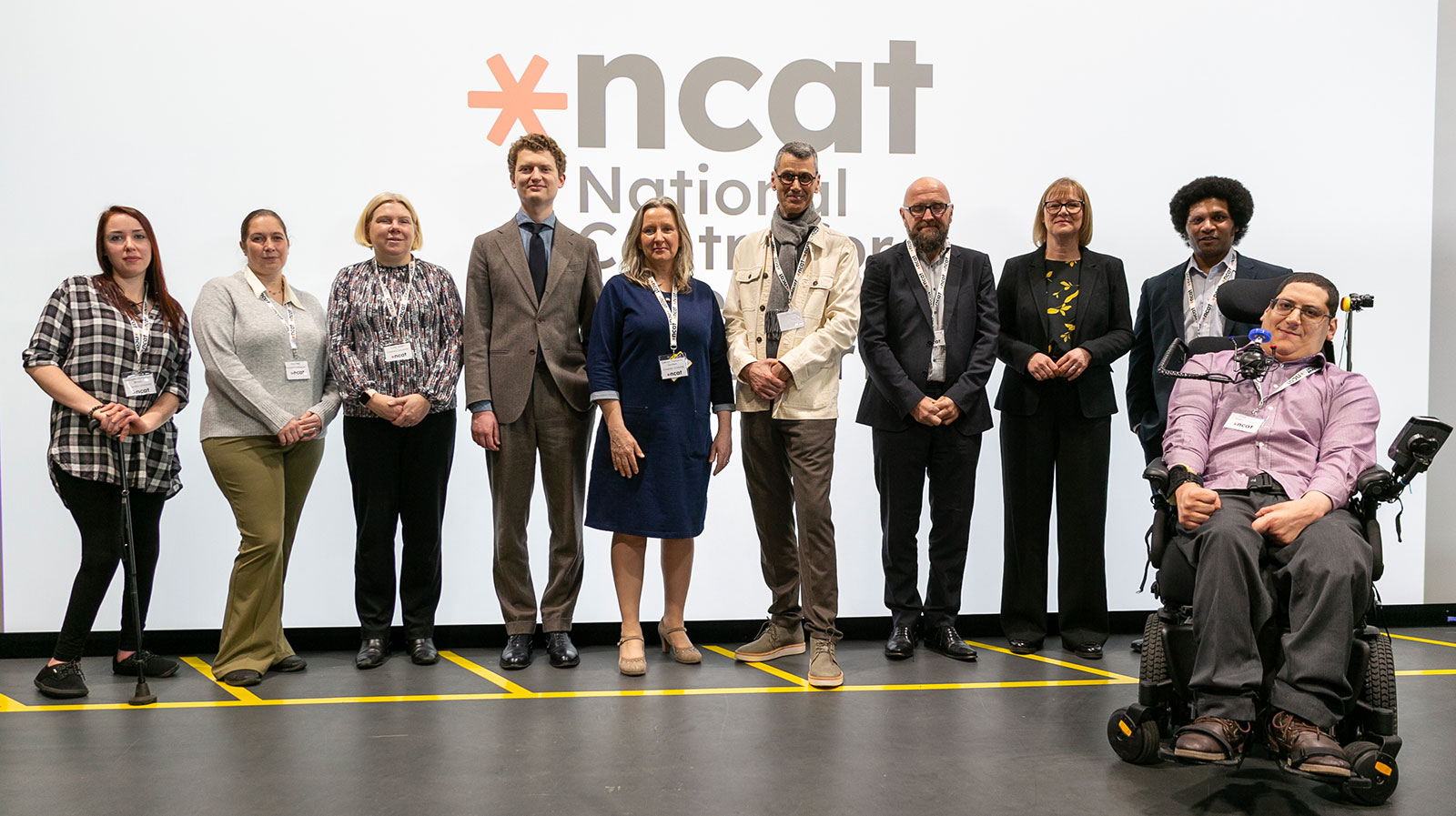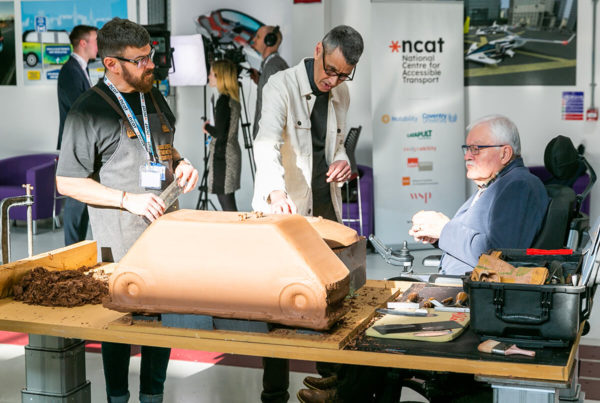
Coventry University is today launching the National Centre for Accessible Transport (NCAT) with the aim of making future and existing modes of transport accessible to all.
A UK first in inclusive transport, NCAT is a £20 million project funded by Motability, the charity, and is led by Professor Paul Herriotts, based at the university’s National Transport Design Centre (NTDC), working alongside a number of organisations that form a specialist consortium.
Consortium members are Connected Places Catapult, Designability, Policy Connect, Research Institute for Disabled Consumers, and WSP.
NCAT’s research and agenda will be led by disabled people and will build upon the user-centred approach successfully developed at NTDC. The centre aims to make transport accessible for all by engaging with disabled people to better understand their experiences and co-design solutions; amplifying the voices of disabled people in all decision-making; collaborating widely with transport stakeholders; and demonstrating good practice and impact to influence policy, with innovation at the heart of its work.
“It is vital that we listen to what disabled people have to say about their experiences of public and private transport and use this information to change the future of travel. NCAT will use research and insights to influence key decision makers in the transport sector and local and national government to ensure that the way disabled people travel and get from one place to another is made much easier.”
Professor Paul Herriotts
Motability’s research shows that disabled people in the UK currently make *38% fewer journeys than non-disabled people – a figure that hasn’t changed in the last decade. This impacts disabled people’s access to healthcare, employment, education and social activities.
An event to officially launch the centre is taking place at Coventry University today (February 15) and invited guests will hear directly from disabled people about their current travel and transport experiences.
When there are barriers to using transport, it really can impact your self-esteem. There is a lot more planning that disabled people have to do to travel, which can be stressful and sometimes you really have to weigh up whether the journey is worth it. I feel so privileged to be helping this project, a centre like this is really needed.”
Stephanie McPherson-Brown, PhD student with Coventry University
Professor John Latham CBE, Coventry University Vice-Chancellor
We know that being unable to make the journeys they want or need to, has a huge impact on disabled people’s daily lives and more needs to be done to help make transport inclusive.
“I look forward to seeing the positive and meaningful changes the Centre will make by working with disabled people, disabled people’s organisations, transport providers and policy makers to make transport accessible for everyone.”
Rachael Badger, Director of Performance and Engagement at Motability
There’s nothing like this centre at the moment and it’s great to be a part of this research, it’s very exciting.”
Kay Atkin, PhD Student with Coventry University
Find out more or get involved with NCAT.
*About the Transport Accessibility Report
Disabled people make an average of 38 per cent fewer trips than non-disabled people. There has been no reduction in this gap over the past decade. Analysis shows that completely closing the transport accessibility gap for disabled people in the UK would deliver benefits in the region of £72.4 billion per annum.
NCAT
NCAT will work with disabled people, disability organisations, transport providers and policy makers to undertake research and develop solutions, making sure all modes of future travel systems (including road, rail, air and sea) have accessibility for disabled people at the heart of their development and delivery. The aim is for NCAT to provide disabled people with increased independence, travel confidence, and an improved quality of life.
NCAT will be located in the National Transport Design Centre, a national hub for future transport design and development and a state-of-the-art facility operating within the Research Centre for Future Transport and Cities at Coventry University. The centre has deep, historic and regional links to the transport industry, with organisations such as Jaguar Land Rover and Horiba MIRA. NTDC has key research strengths around user-led and inclusive transport design and is highly integrated in an inter-disciplinary, transport research community.


